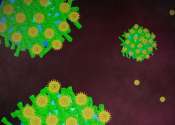New method reveals secrets of protein interactions with potential for drug discovery
Scientists from the University of Oulu (Finland) and Texas A&M University (U.S.), have developed a new method to study how proteins interact with small ligand molecules, paving the way, for example, for faster and more efficient ...









